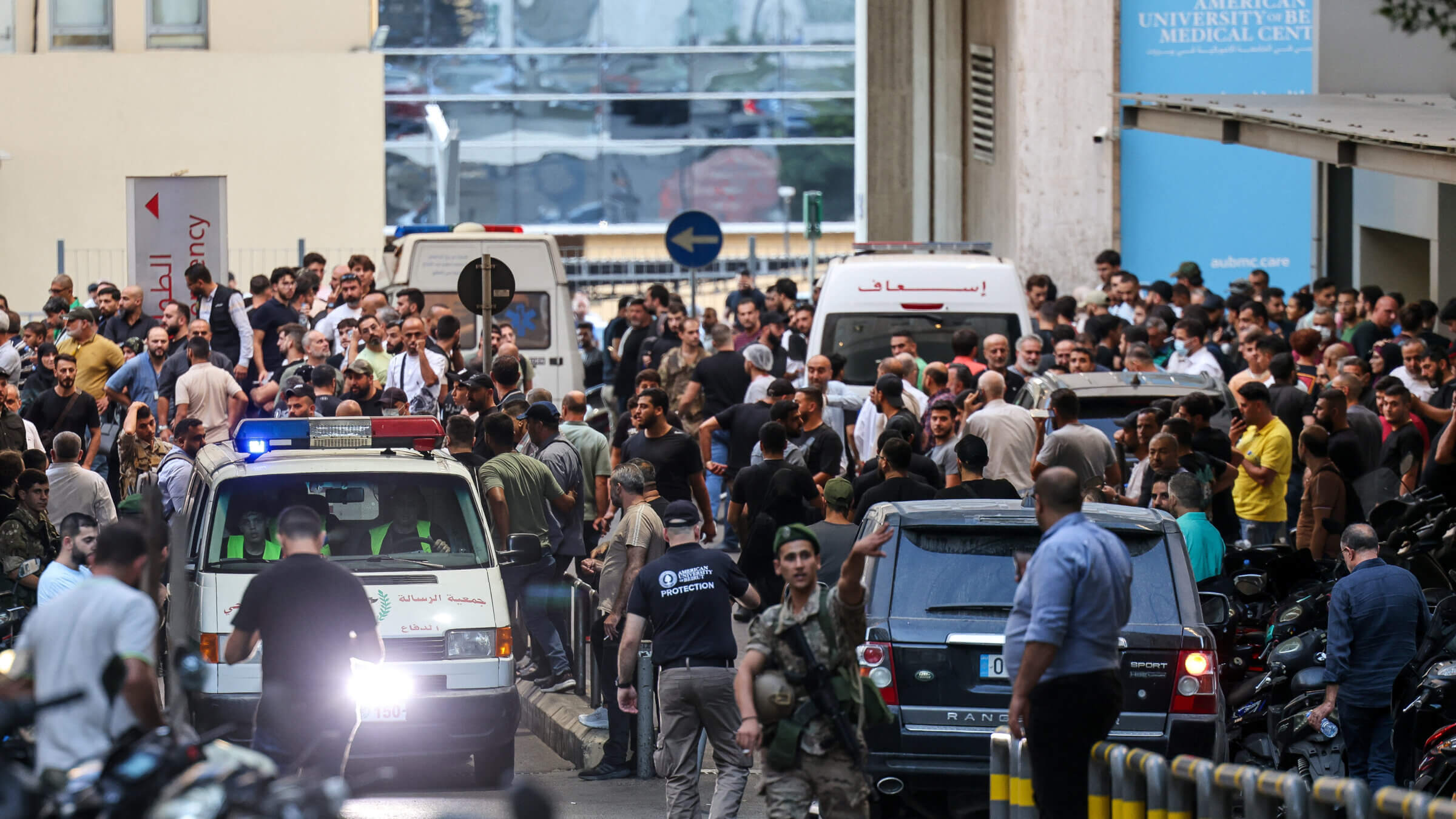Pager attack is latest, and largest, in Israel’s long history of deadly covert ops
Other incidents include remote-controlled assassinations and a bomb in a book

Ambulances are surrounded by people at the entrance of the American University of Beirut Medical Center after paging devices exploded in Lebanon. Photo by Anwar Amro/AFP via Getty Images
The pager attack that killed at least a dozen people and injured thousands in Lebanon is the latest high-tech subterfuge in a long history of covert ops attributed to Israel.
Israel did not publicly acknowledge its responsibility for Tuesday’s detonation of thousands of pagers issued months ago by the militant group Hezbollah to its members. But various news outlets cited sources saying Israeli operatives had hidden explosives inside the handheld devices, which were manufactured in Taiwan and imported by Hezbollah through a go-between company in Hungary.
On Wednesday, a second round of explosions in Lebanon, via walkie-talkies and solar energy systems, killed at least another nine people and injured hundreds more.
Here are some other incidents Israel’s Mossad intelligence agency is believed to have been responsible for over the decades.
1972: Bassam Abu Sharif, a member of the Popular Front for the Liberation of Palestine and a former adviser to the head of the Palestine Liberation Organization, was injured by explosives that went off when he opened a package in the Beirut office of Al Hadar newspaper, where he was deputy editor. The bomb was inside a book, The Memoirs of Che Guevara. Sharif lost hearing in one ear, sight in one eye and four fingers. Sharif, called “the face of terror” by Time magazine, was reportedly behind four PFLP hijackings in 1970.
1972: A Mossad agent posing as a journalist arranged a telephone interview with the PLO’s representative in Paris, Mahmoud Hamshari. When Hamshari picked up the phone, explosives that had been planted under it went off, killing him. The assassination was part of Israel’s campaign to avenge the murder of 11 of its athletes at the Olympic Games in Munich earlier that year.
1996: Yahya Ayyash, a Hamas bombmaker known as “The Engineer,” was killed when he answered a call from a booby-trapped cellphone.
1997: Khaled Mashal, the political leader of Hamas, nearly died when a Mossad agent posing as a tourist came up from behind and held a device near his ear that poisoned him. The king of Jordan said he would invalidate his country’s peace accord with Israel if Mashal died, and then-President Bill Clinton pressured Israel into dispatching an antidote.
2000: Samih Malabi, a senior member of the Palestinian political faction Fatah, was killed when his cellphone exploded near the Qalandiya refugee camp, located in the West Bank between Jerusalem and Ramallah.
2007: Computer malware known as Stuxnet, said to be created by U.S. and Israeli operatives, reportedly destroyed equipment in an Iranian uranium facility.
2020: Iranian nuclear scientist Mohsen Fakhrizadeh was assassinated by a remote-controlled machine gun mounted on top of a car.
2024: Ismail Haniyeh, Hamas leader and prime minister of the Palestinian National Authority, was assassinated in Tehran while attending the inauguration of Iran’s president, Masoud Pezeshkian. The New York Times reported that he was killed by a remotely triggered device that had been smuggled into his guesthouse and hidden there two months earlier.















